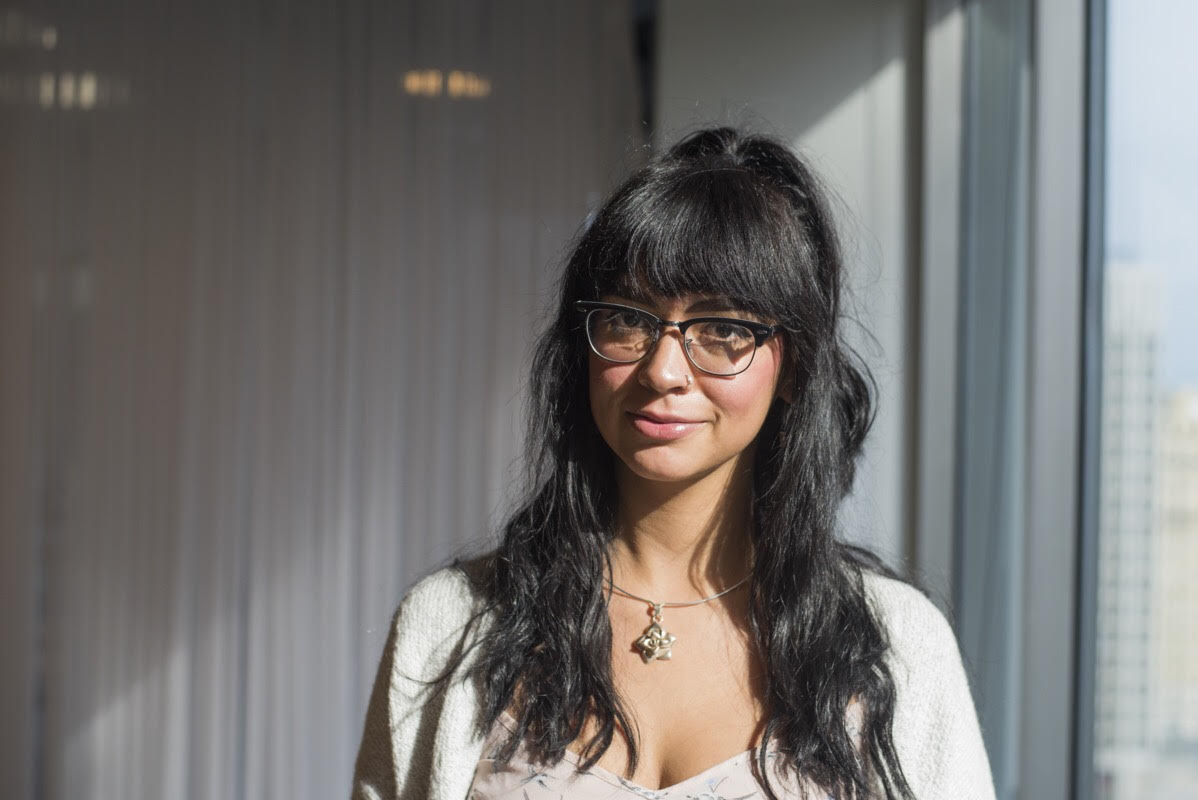Temple students Hazim Hardeman, KLN ‘17, and Carolyn Rivera, KLN ‘19, collaborated with Communication and Social Influence professor Bruce Hardy and teaching assistant Chen Zeng on a report examining the effect of news framing on the public’s opinion of gun control after mass shootings. Hardeman, who has since graduated, was recently named Temple’s first Rhodes scholar and is soon heading to Oxford University to pursue a master’s degree. Rivera is a first year master’s student at Temple, studying Media Studies and Production.
The study, titled “The Effect of Different Mass Shooting News Frames on Support for Gun Control Before and After the Orlando Florida Pulse Nightclub Shooting,” gathered responses from over 1,000 subjects and won the Top Paper Award in the NCA Mass Communication Division.
The term “news framing” refers to the way a story is presented in the media, affected by what the content creator chooses to focus on. For example, mass shootings in the U.S. are often framed as either a mental health issue, a gun control issue or a terrorism issue.
The study traces its origins to a spirited discussion about mass shootings and gun control in Hardy’s Intro to Public Relations class last spring. Several students approached Hardy to continue the discussion, including Rivera and Hardeman. They had already become fast friends, despite the anonymity of a lecture hall with more than 150 students.
“Hazim and I had gravitated towards each other due to our shared interest in PR,” Rivera said. “After class that day, we approached Bruce and asked him if we could conduct our own research study so that we would get a chance to interact with the public and learn how studies work.”
From there, Rivera, Hardeman and several other students formed SCURT (Strategic Communication Undergraduate Research Team), which is still active to this day. The student-run organization studies the effects of strategic communication on the general public.
Already working on this project, Hardy encouraged the two students to join and they agreed despite their busy schedules.
“Hazim and I tried to find time to meet with Bruce whenever we could,” Rivera said. “A lot of times it was remote—we would send him drafts, or he would send us something to work on. But we always made an effort to keep in touch.”
The study involved 1,043 adults who participated in an online experiment to test the effects of framing a mass shooting as a gun control problem, a domestic terrorism problem or a mental health problem. They presented subjects with a news story about a fictional mass shooting with details designed to control for any existing biases. The fictional shooting took place in a town called Springfield—one of the most common town names in the country—and was written by The Vancouver Sun, to avoid any connections with U.S. news outlets that may be known to have their own biases. The only difference between each subject was the title, which read, “Analysis: Springfield Shooting and the U.S. (Domestic Terrorism/Mental Health/Gun Control) Problem.” Respondents would read the brief article framed one of these ways, and then be tested afterwards to evaluate their opinions on gun control.
Unfortunately, their research was quite timely. The Pulse Nightclub shooting occured in Orlando, Florida, on June 12, 2016, right in the middle of their experiment. As the deadliest mass shooting in U.S. history up to that point, it had a profound effect on the data.
“That event interacted with our experimental stimuli and produced the result suggesting that framing a mass shooting as a terrorist act increased support for stricter gun control,” Hardy said. Indeed, of the respondents who saw the story framed as domestic terrorism, 73.1% favored stricter gun control laws, and that number increased among the sample that was tested post-Orlando.
Hardy was particularly concerned with the study that focused on mental health. “Framing mass shootings as a mental health problem creates the false perception that people with mental illness are dangerous,” he said. “Without drastic changes in gun control policy this trend will continue.”
Because of dedication like this, Hardeman found the work with Hardy rewarding on a personal level.
“Hardy is committed to developing, training and mentoring young scholars, and he is committed to developing my career as a scholar,” he said. “Bruce is an excellent example of what I want to be as a scholar and a teacher, but also a great friend.”

